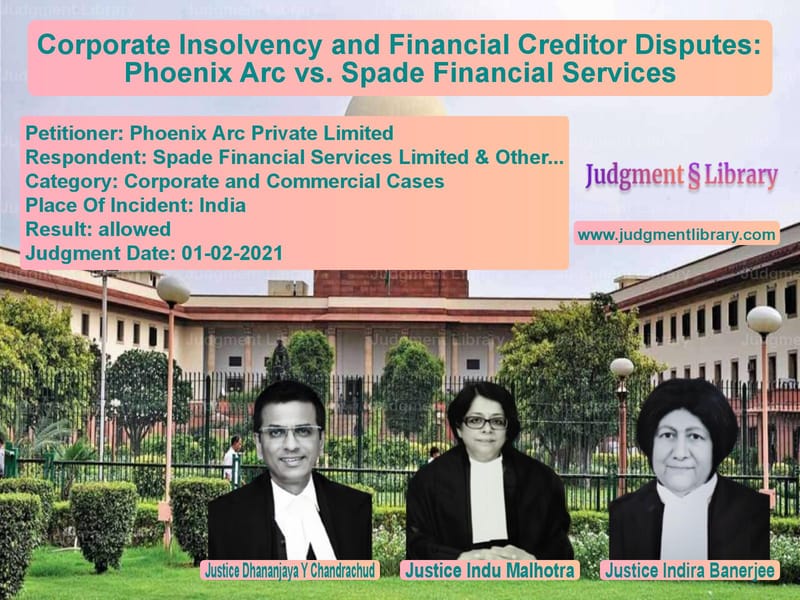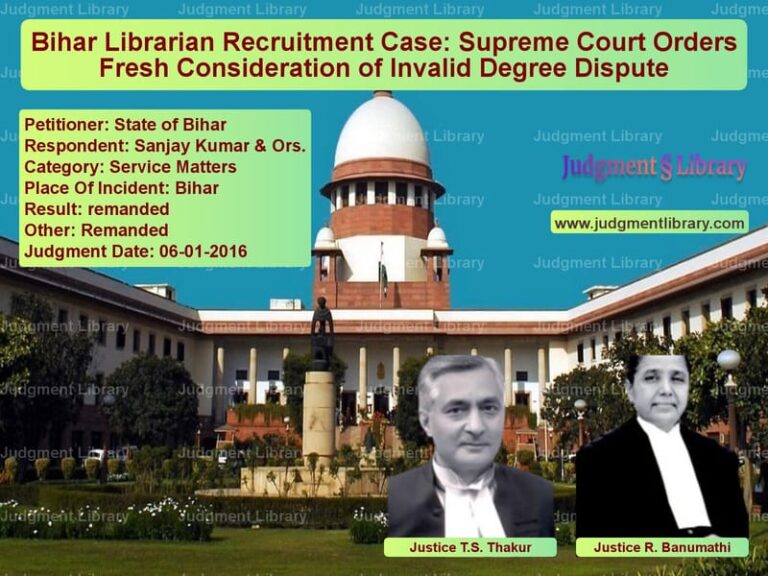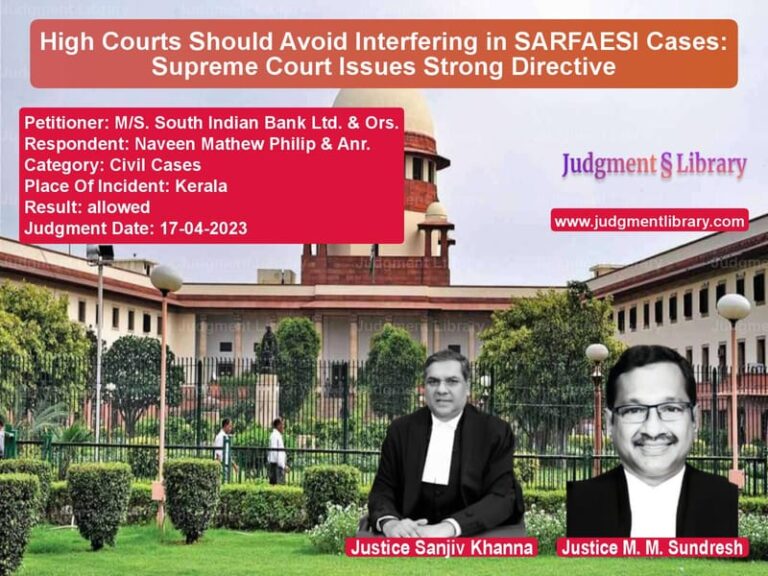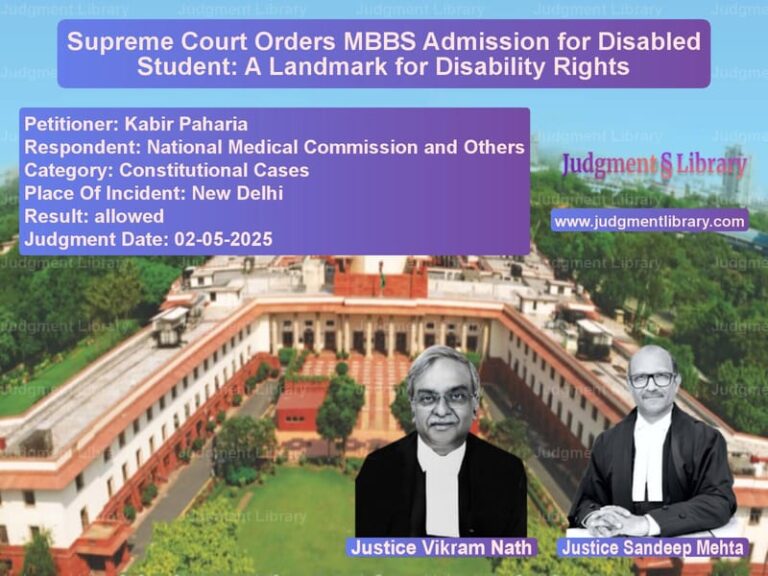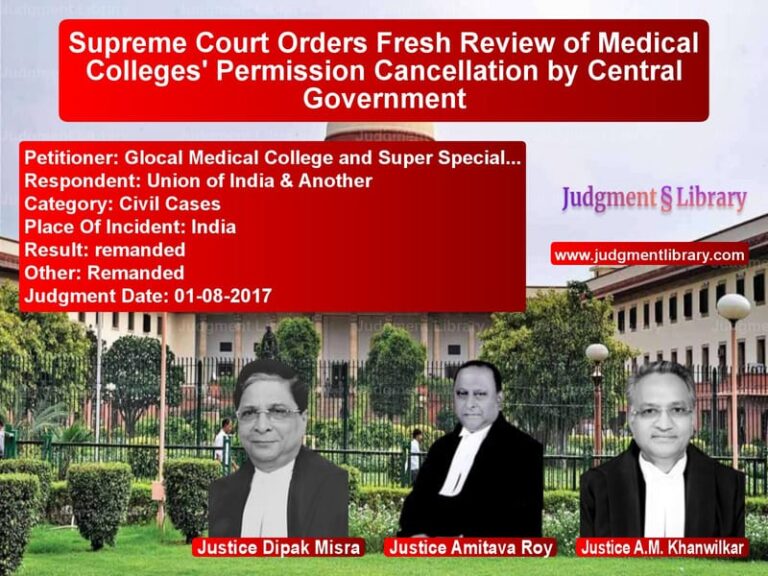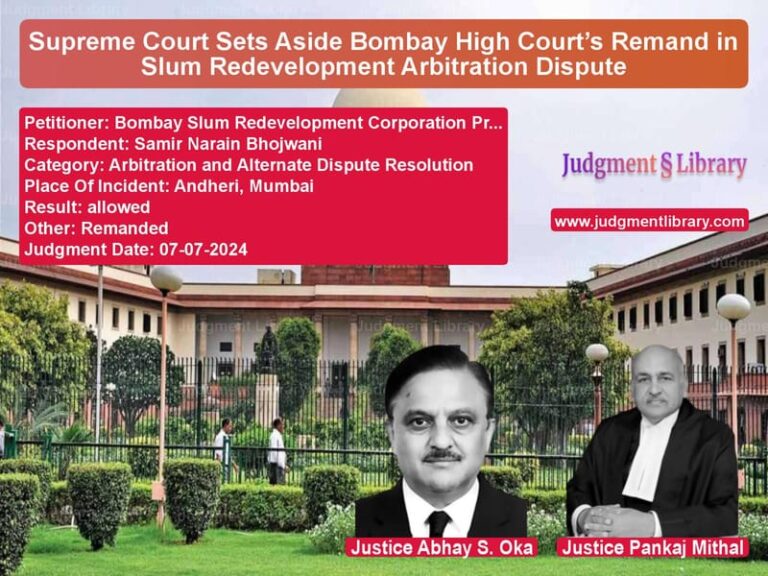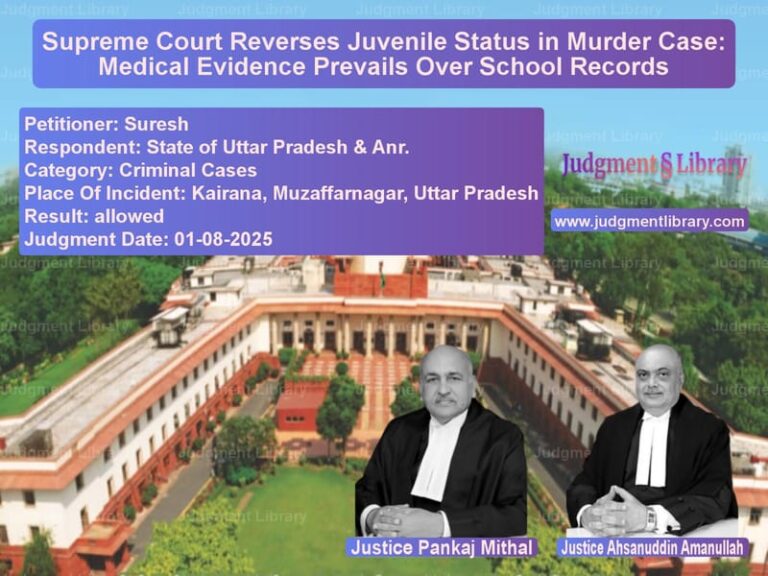Corporate Insolvency and Financial Creditor Disputes: Phoenix Arc vs. Spade Financial Services
The case of Phoenix Arc Private Limited vs. Spade Financial Services Limited & Others is a landmark judgment in corporate insolvency law. It addresses the key issues surrounding the classification of financial creditors, related parties, and their participation in the Committee of Creditors (CoC) under the Insolvency and Bankruptcy Code (IBC), 2016. The Supreme Court had to determine whether Spade Financial Services Limited (Spade) and AAA Landmark Private Limited (AAA) were financial creditors and related parties to the corporate debtor, AKME Projects Limited.
Background of the Case
The case arose from the initiation of a Corporate Insolvency Resolution Process (CIRP) against AKME Projects Limited, which was admitted on 18 April 2018 based on an application by an operational creditor. During the CIRP, Spade and AAA claimed to be financial creditors, submitting claims for Rs. 109.11 crores and Rs. 109.72 crores, respectively. Their claims were based on inter-corporate deposits (ICDs) and agreements regarding the purchase of development rights.
However, Phoenix Arc Private Limited and YES Bank challenged their inclusion in the CoC, arguing that Spade and AAA were related parties to the corporate debtor and that their transactions were collusive. The National Company Law Tribunal (NCLT) ruled that Spade and AAA were not financial creditors due to the collusive nature of their transactions and excluded them from the CoC. This decision was upheld by the National Company Law Appellate Tribunal (NCLAT), but with a contradictory observation that Spade and AAA were financial creditors. The matter was then brought before the Supreme Court.
Key Legal Issues
- Whether Spade and AAA were financial creditors of the corporate debtor.
- Whether Spade and AAA were related parties to the corporate debtor.
- Whether Spade and AAA should be excluded from the CoC.
Arguments by Phoenix Arc Private Limited
- Phoenix argued that Spade and AAA were not financial creditors as their transactions lacked the characteristics of a financial debt under Section 5(8) of the IBC.
- It was contended that the transactions were collusive and designed to give Spade and AAA an undue advantage in the CoC.
- Phoenix emphasized that Spade and AAA had a deep entanglement with the corporate debtor, making them related parties under Section 5(24) of the IBC.
- Phoenix relied on financial records, forensic audits, and past associations between the promoters of Spade, AAA, and the corporate debtor to prove their related party status.
Arguments by Spade and AAA
- Spade and AAA contended that their transactions with the corporate debtor constituted financial debt as per Section 5(8) of the IBC.
- They argued that they were not related parties at the time of initiation of the CIRP and thus could not be excluded from the CoC.
- Spade and AAA claimed that their financial agreements were legitimate and entered into in the ordinary course of business.
- They also argued that the previous NCLT order recognizing them as financial creditors operated as res judicata and could not be reconsidered.
Supreme Court’s Analysis
The Supreme Court conducted an in-depth analysis of the transactions and relationships between the parties.
- The Court noted that financial debt under Section 5(8) requires disbursement of money against consideration for time value of money. The transactions between Spade, AAA, and the corporate debtor were found to be collusive and lacked the essential characteristics of financial debt.
- The Court observed that Spade and AAA had close connections with the corporate debtor’s promoters, including common shareholding and overlapping directorships, which made them related parties.
- The Court ruled that Spade and AAA were not financial creditors and should be excluded from the CoC to prevent undue influence over the resolution process.
Final Judgment
The Supreme Court set aside the NCLAT’s observation that Spade and AAA were financial creditors and affirmed their exclusion from the CoC. The judgment reinforced that entities that engage in collusive transactions cannot claim financial creditor status and that related parties should not be allowed to manipulate the CoC.
Read also: https://judgmentlibrary.com/supreme-court-clarifies-contempt-of-court-in-family-business-dispute/
Conclusion
This judgment has significant implications for corporate insolvency proceedings in India. It ensures that only genuine financial creditors can participate in the CoC and safeguards the resolution process from undue influence by related parties. The ruling upholds the integrity of the IBC framework and strengthens protections against collusive and fraudulent transactions.
Petitioner Name: Phoenix Arc Private Limited.Respondent Name: Spade Financial Services Limited & Others.Judgment By: Justice Dhananjaya Y Chandrachud, Justice Indu Malhotra, Justice Indira Banerjee.Place Of Incident: India.Judgment Date: 01-02-2021.
Don’t miss out on the full details! Download the complete judgment in PDF format below and gain valuable insights instantly!
Download Judgment: phoenix-arc-private-vs-spade-financial-serv-supreme-court-of-india-judgment-dated-01-02-2021.pdf
Directly Download Judgment: Directly download this Judgment
See all petitions in Bankruptcy and Insolvency
See all petitions in Corporate Governance
See all petitions in unfair trade practices
See all petitions in Company Law
See all petitions in Shareholder Disputes
See all petitions in Judgment by Dhananjaya Y Chandrachud
See all petitions in Judgment by Indu Malhotra
See all petitions in Judgment by Indira Banerjee
See all petitions in allowed
See all petitions in supreme court of India judgments February 2021
See all petitions in 2021 judgments
See all posts in Corporate and Commercial Cases Category
See all allowed petitions in Corporate and Commercial Cases Category
See all Dismissed petitions in Corporate and Commercial Cases Category
See all partially allowed petitions in Corporate and Commercial Cases Category

